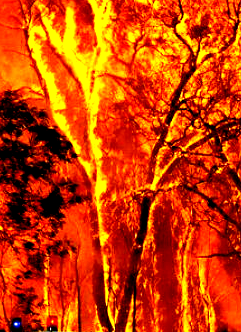Giant fire effect reviewed
 Experts say the 2019-20 Black Summer fires were a stark warning for Australia’s ecosystems.
Experts say the 2019-20 Black Summer fires were a stark warning for Australia’s ecosystems.
The disaster reshaped the environment, severely affecting over 2,000 species, with rainforests and mammals hit hardest.
A series of studies (accessible here and here) reveal how the fires destabilised biodiversity, especially in areas outside conservation zones or those with recent or frequent burns.
Vast regions of southern Australia were scorched, with forests and rainforests suffering severe impacts.
The evidence is becoming quite clear that responses to fire become more extreme with past disturbance, with repeated fires and droughts linked to greater destabilisation.
While some plants and animals benefited, many faced significant threats. Mammals and rainforest ecosystems emerged as the most vulnerable, highlighting the fragile balance within these habitats.
The study called for expanding protected areas and prioritising rapid wildfire suppression in fire-prone regions. However, addressing climate change remains the most critical step.
Although the Australian research team recommended wildfire suppression, a US Forest Service expert countered this, calling it a “deeply misguided and unsustainable” approach based on challenges in the western United States.
The researchers urged immediate action to meet global biodiversity conservation targets. Expanding renewable energy and divesting from fossil fuels were highlighted as priorities, alongside integrating biodiversity into fire management planning.







 Print
Print



